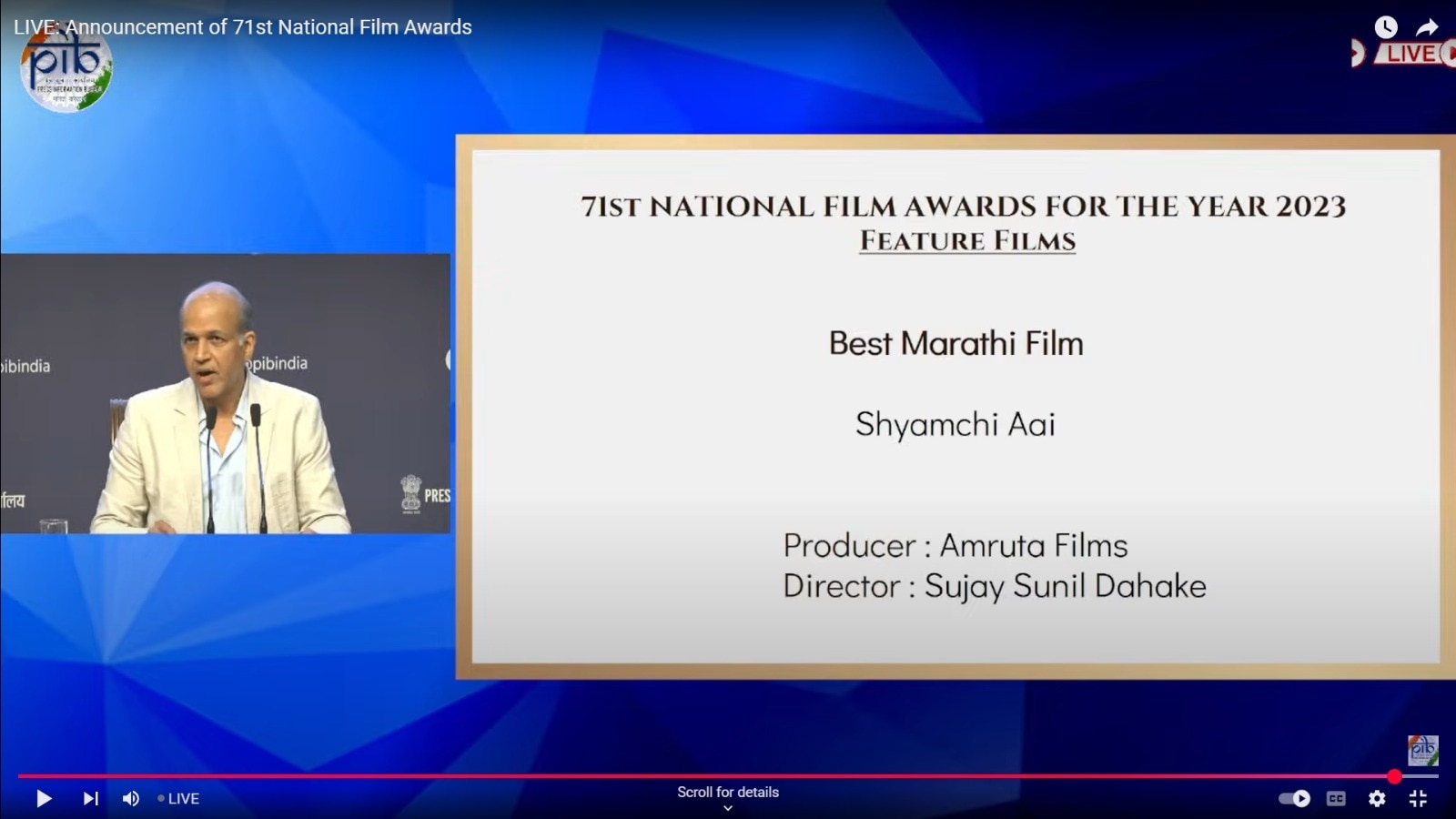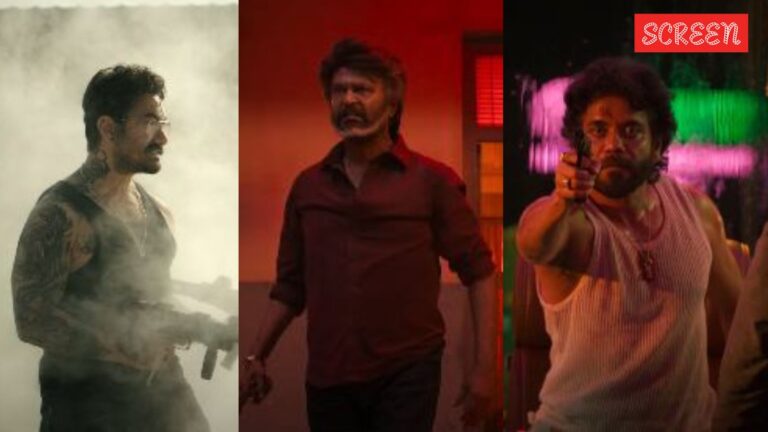MARATHI CINEMA once again asserted its creative prowess at the 71st National Film Awards, with a diverse range of films clinching honours across critical categories. Marathi filmmakers and artists were celebrated for their contribution to Indian cinema with “Shyamchi Aai” winning the Best Marathi Feature Film award.
ARTICLE CONTINUES BELOW VIDEO
Directed by Sujay Sunil Dahake, Shyamchi Aai offered a contemporary cinematic retelling of the classic Marathi novel by Sane Guruji. The jury commended its sensitive exploration of values, sacrifice, and familial bonds set against a rural backdrop. The film was awarded the Rajat Kamal.
Marathi cinema has always held a historic legacy at the National Film Awards, being the very first to be recognised at the highest level. In 1954, “Shyamchi Aai”, directed by P.K. Atre, was awarded the President’s Gold Medal for the All India Best Feature Film, a recognition now known as the National Film Award for Best Feature Film. This heartwarming story of a mother’s sacrifice marked the beginning of a prestigious tradition for Marathi films.
In the debut category, “Aatmapamphlet”, directed by Ashish Bende, was honoured with the Best Debut Film of a Director in the Feature Film section. The film stood out for its stylised narrative and bold thematic choices, reflecting the inner world of adolescence and rebellion. The film was awarded the Swarna Kamal.
Continuing Marathi cinema’s strength in children’s storytelling, “Naal 2”, directed by Sudhakar Reddy Yakkanti, received the award for Best Children’s Film. The film, a sequel to the 2018 critically acclaimed Naal, appealed to audiences across age groups and earned the Swarna Kamal.
In the performance categories, Marathi films dominated the Best Child Artist segment. Three young actors from Naal 2: Treesha Thosar, Shrinivas Pokale, and Bhargav Jagtap, were jointly honoured for their nuanced performances. Additionally, Kabir Khandare was awarded in the same category for his role in “Gypsy”, another Marathi film, which presented a moving narrative of a child’s bond with nature and his struggle for acceptance.
With these films reflect the diversity and depth of storytelling emerging from Maharashtra, Marathi cinema has once again reaffirmed its place as a vital and dynamic force within the broader spectrum of Indian cinema.
























